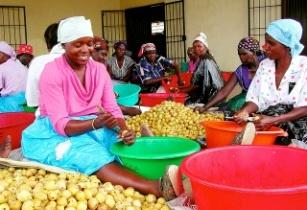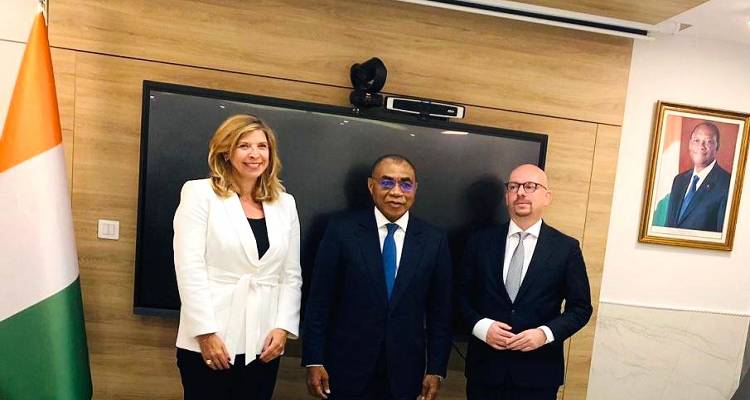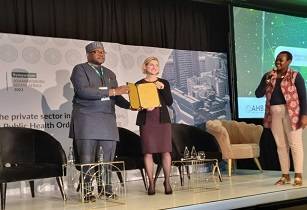More than 4,776 women in Uganda and 25,000 women across East Africa have directly benefited from a TradeMark East Africa (TMEA) women and trade programme since 2015
This was revealed during the Trade and Development Forum held in Kampala from 28 February – 1 March 2018.
TMEA has also increased market access for traders through establishment of five cooperatives in subsector areas of beans, coffee, maize, handcrafts and beverages in the districts of Hoima, Kabale, Mpigi, Jinja, Masaka and Kapchorwa.
Clare Kabakyenga is one of the programme beneficiaries and trades between the borders of Uganda and Rwanda. She recently scaled up to trade in Kenya’s Busia border. She shared with the audience her journey, successes and lessons.
“I started trading to increase my income. My journey began in farming, first planting potatoes and then beans. Beans are viewed as women crops in my culture. Farmers in my district are mostly small scale and yet to penetrate markets competitively, you need volumes. So, we formed Manyakabi Area Cooperative enterprise which currently has 8105 farmers, 89 per cent of who are women. Members supply the cooperative with maize and beans to bulk. Markets in Uganda were saturated by the same products and so, we contacted middle men who sold to Rwanda and Democratic Republic of Congo.”
“On learning the profit margins, they got, we decided to take a risk and export to Rwanda. Our first export spent eight days at the border because we had to get a certificate of origin (CoO) and a Phsytosanitary certificate. The CoO was from the export promotion board and Phsytosanitary certificate from ministry of agriculture.”
“Other aspects of the training included support services, improved post-harvest handling technologies and how to access markets. Prior to this, we would sell all our grains irrespective of the quality, at the same price. After training, we priced our grains by quality and looked for quality conscience buyers. Before the programme and training I would make US$224 per season from selling maize, now I make US$19600 per season.”
“At cooperative level we would make US$2520mn per season, currently we make US$168840mn from maize and US$42,560mn from beans. Our cooperative turnover in the last edited accounts was US$560,000bn.”
While leading a plenary discussion on women and trade, Uganda Minister of Trade, Industry and Cooperatives Amelia Kyambadde, noted that TMEA’s efforts complement the ministry’s agenda of empowering women traders. The ministry is currently issuing machines to women’s groups for value addition.
“The Ugandan trade ministry is also reviewing all trade policies to ensure they have gender provisions. Moving forward and as Government, through a collaborative effort, we aim to reduce challenges that women face as traders and call upon other organizations to join us,” said Kyambadde.






































